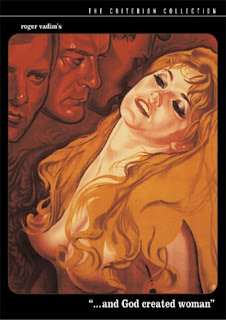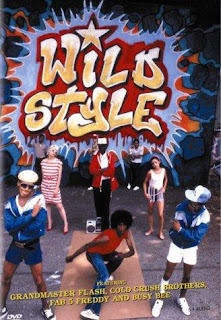FREE ON CINEGEEK.DE Jean-Luc Godard - Vivre Sa Vie (engl. subt.)

Sometimes I would have loved to grow up in the 60s! I would have waited in the rain in front of an arthouse cinema for 30 pfennigs and waited for the next screening of Vivre Sa Vie. Maybe I could have seen the original Godard at a film festival! The way he says things like that: "The cinema, this is not the station. It's the train..." Or was it the other way around? It doesn't matter. I'd have just listened and nodded like the others. Everyone loved his films! The way we all discussed "Tarantino" in the '90s, we would have talked about Godard. How he turns the camera around 360 degrees, stops at once and drives everything back! Just to prove to us that he can! Today we scratch his monument. Was he overrated? After all, art films are "out" - or not? Well, I can give you the rental numbers from our video store: Godard, Godard and Godard again! Especially his early work is rented and rented again! Vivre Sa Vie takes the first place. Today is the day for me again. Vivre Sa Vie has to go into my DVD player. After five minutes it's all over for me. I do not move. I stare at the monitur. Until it's over. I mean, even after the credits have ended, to really breathe again! It's a great film. It's one of the greatest movies ever. The story is told by Nana (Anna Karina). Anna Karina was Godard's wife at that time. She looks almost transparent with her porcelain face, her cautious looking eyes, her black hair that fits around her head like a helmet and her chic clothes. We know that the Nouvelle Vague needs beautiful women and cool guys who smoke non-stop! Anna Karina also smokes all the time. She embodies a young Parisian woman. The opening credits show her face first sideways, then frontally. From beginning to end the film will watch her, try to read her face. Let's not miss anything! Not a single movement! Add to this the music by Michel Legrand, which suddenly stops and then continues with the next motif. As if the music wanted to explain Anna Karina. But it fails and starts all over again. In the next picture we see her, Nana, from behind. She is talking to Paul. We learn that Paul is her husband. She has left him and their child. Now she has a vague idea of what comes next. Maybe she's going to the movies. Godard's favorite cinematographer, Raoul Coutard, will be showing Nana first, then Paul. She zooms back and forth, is directed at the back of Nana's head, then their faces shine in the mirror. Vivre Sa Vie is divided into thirteen such images, which correspond to old-fashioned novels. Nana tries to steal the key to her apartment from the concierge's office, but is caught and taken out into the street. She has no home and no money. Is this her fault or her fate? Why did she leave Paul? Does she have no feelings for her child? Nana goes to the movies, where Dreyer's "The Passion Of Joan Of Arc" is playing. Of course she does. Dreyer's film is also about a woman who is judged by men. She meets a guy in a bar who wants to take pictures of her. There's a fight over a 1000 franc note. The police are coming. Then Nana hits the whore route and gets bought by a john. But he's not allowed to kiss her. The camera is always on her heels. In a record shop, Nana argues with a customer. The camera suddenly turns away and looks out the window. Then Nana meets Raoul, her pimp. He wants a smile from her. The camera pauses first on her, then on him. Nana refuses to smile; the camera turns away from Raoul and stops at Nana again. This is more than just "style". The camera shows us how people look at other people. It makes us aware of it. Then the most famous picture: Nana smokes while a customer hugs her. She looks over his shoulder. Her eyes are completely empty. Later she is kissed by Raoul. She breathes out the smoke of her last cigarette. What can you do in this Paris? You hang around in bars, wishing you had more money. Prostitution is called "La Vie" in France by the way, which gives the title its meaning. Finally Vivre Sa Vie ends up in a thriller - just like we know it from Godard's first big movie. But what does the camera do? It points to the floor. It simply looks away. It ignores the end of its own film. Who remembers Nana's conversation with the philosopher in the café? He tells her the story of a man who runs away from danger. He runs and runs until he gets scared and stops. That's what kills him. The man thinks for the first time and dies. And Nana? Will she die the first time she stops? Curious, she follows the old man's explanations. We experience her curious, big eyes, which until then rejected any feeling! Before, Paul told the story of the chicken. If you take the outer shell of the chicken, you keep the inner part. Nana is nothing but an outer shell. Vivre Sa Vie hardly knows any gradations. The film stares at its protagonist. Somehow it discourages us in our attempt to interpret Nana's life melodramatically. Godard follows a strict logic that must be French. Of course it happens that way. Nana sits, waits, drinks and smokes. She makes some money. She meets her first pimp and relinquishes all control over her life. Only once we see her dancing and laughing in front of a jukebox. Only this one time we can make the little girl realize she once was. In this moment we catch a glimpse into her soul! Otherwise, she is nothing but surface. If you read a little more about Vivre Sa Vie, you will learn that Godard used first takes almost exclusively. We can see that! The camera looks curious! She sees everything for the first time and is amazed! Vivre Sa Vie is clear, snappy and completely unsentimental. Then the film ends abruptly.



























